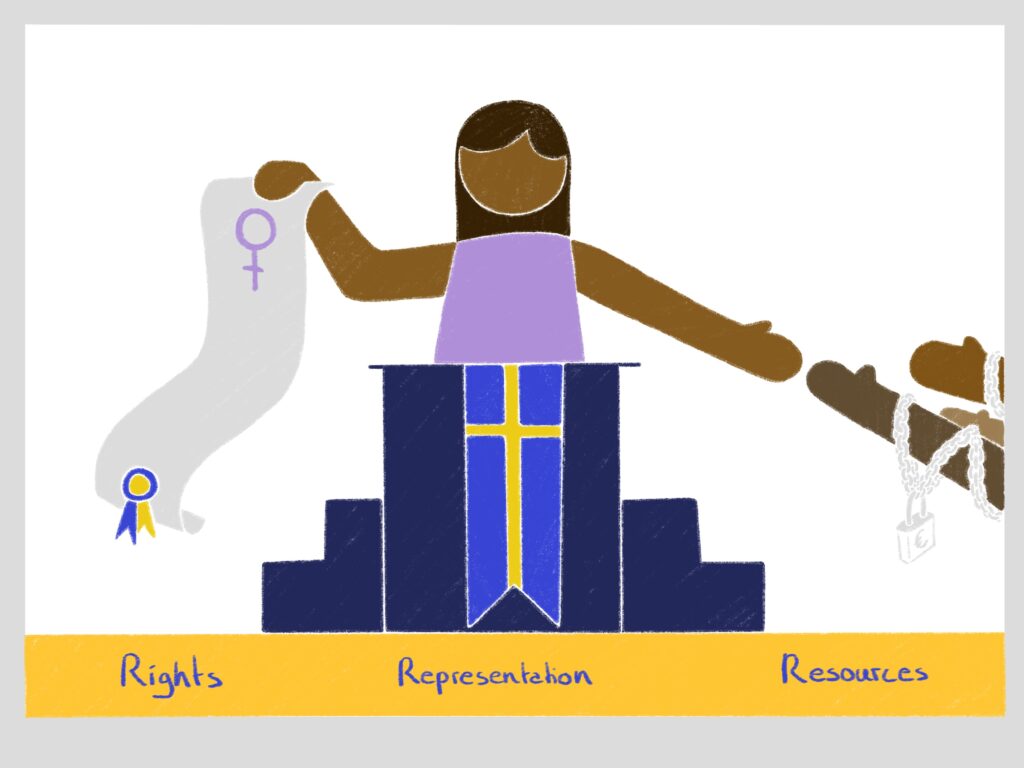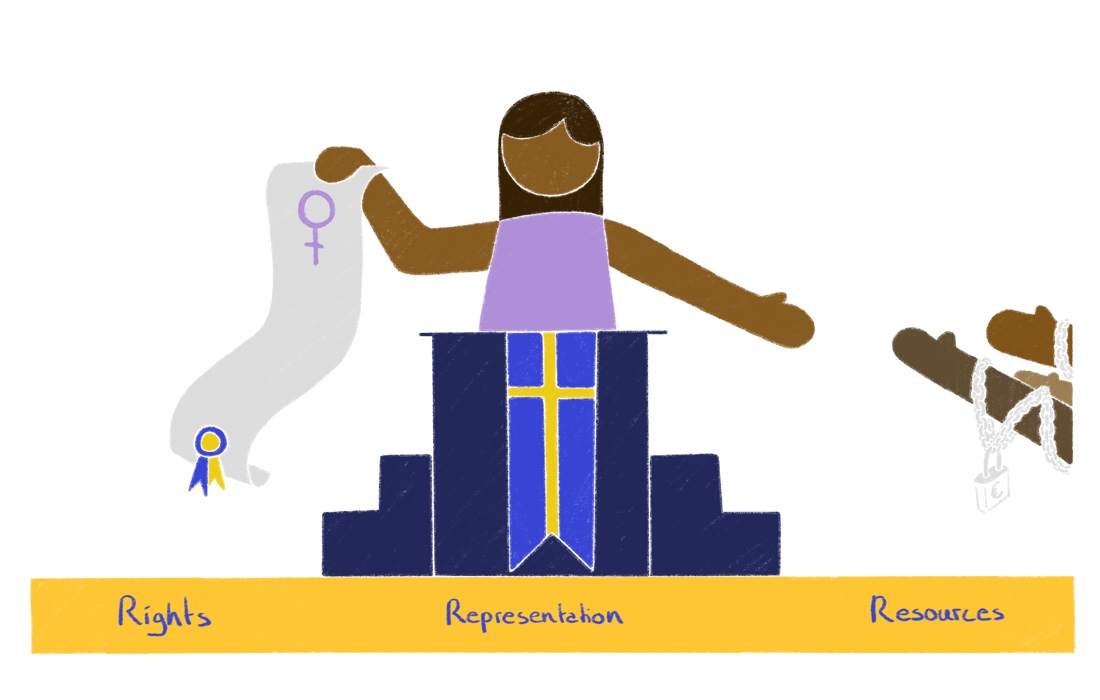

Illustration: Finnick Wächtler
Swedish Feminist Foreign Policy: Gone but Never Forgotten
By: Belen Bringas
29th of May 2023
The innovative yet controversial Swedish Feminist Foreign Policy has come to an end. In October 2022, the newly elected government decided to ditch the “feminist” from their foreign policy. Tobias Billström made the announcement that the policy will not be continued, claiming that labels often cover up the real content and can even be seen as counterproductive. He reassured that gender equality would continue to be a core value for the government and would remain a priority even without the feminist foreign policy. The reasoning appears to be the government’s concern that its foreign policy should be based on Swedish interests and values and the feminist policy was competing with those.
While the feminist foreign policy is gone, its impact will not be forgotten in Sweden or in the rest of the world. Sweden was the pioneer of this policy when it was introduced in 2014 by former foreign minister Margot Wallstrom. The goal of the policy was to make gender equality a priority in Sweden’s international agenda. The policy presented several objectives including women’s participation in politics, fighting violence against women, women’s economic empowerment, and more, all of these goals centered on the three R’s the policy is based upon: rights, representation, and resources.
Sweden scrapping their feminist foreign policy can be seen as a setback, considering all their achievements since launching the policy. An obvious sign of success is the many countries that have followed Sweden’s example and implemented their own feminist policies, some of them being Mexico, Canada, France, Germany, and most recently Chile in 2022. Another noticeable achievement would be Sweden’s role in the UN Security Council and its effort to introduce legislation sanctioning gender-based or sexual violence. Sweden’s feminist foreign policy also advocated for women outside of the EU, with Sweden being involved in Colombia’s peace deal in 2016 that included gender equality issues. Sweden also worked with policies in Somalia and Moldova on women’s political representation.
While the policy has gained Sweden a reputation for being a fierce advocate for women’s rights, it has not been free from criticism. For example in 2015 when Margot Wallstrom commented on the situation of women in Saudi Arabia which led to the ambassador being called back to Sweden. This also led to the end of Sweden and Saudi Arabia’s weapon deal and created a strain in the diplomatic relationship between both countries.
Abandoning the feminist foreign policy is a setback for Sweden and it also affects their credibility as the predecessor of the policy that inspired the international community. The reasoning for the removal of the policy is brief and unclear, leaving a lot of room for speculation. Despite no longer having a feminist policy, Sweden has still inspired many countries and will still need to live up to international expectations. Even with the policy being left behind, its impact on the rest of the world will not be forgotten.


